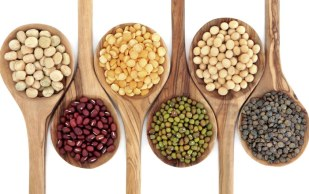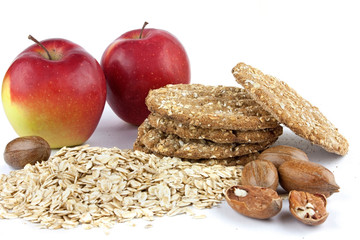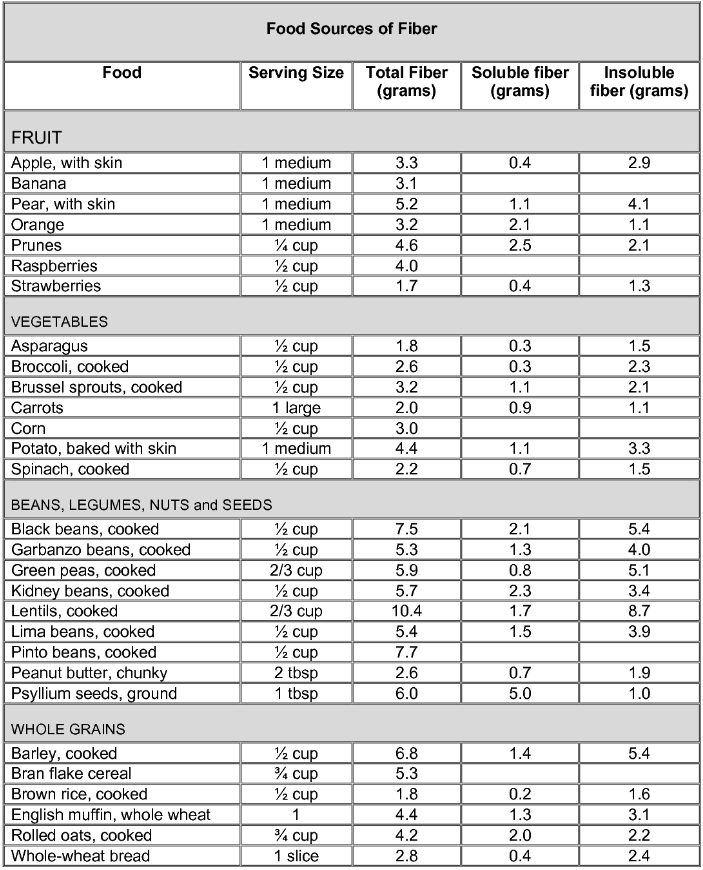July 31, 2017
Is it possible your body is lacking this essential nutrient and you don’t even know it? The answer is YES! Less than 3% of Americans are actually getting the recommended minimum adequate intake of FIBER, leaving a high chance of being part of the remaining 97% of those who are deficient.
The standard American diet provides a concerning average of only 10 to 15 grams of fiber per day. Optimal intake would be 30-40 grams per day although the recommended adequate intake for a healthy adult is between 25 grams (women) to 38 grams (men) per day.
Fiber…. Where Have You Been All My Life!?

What’s so great about fiber?
Fiber is considered a carbohydrate, however different than other carbohydrates as it passes through the body undigested, meaning it isn’t broken down into sugars. Since fiber is digested slowly it helps balance blood sugar (helpful for those with diabetes or hypoglycemia) and although zero calories, it helps you feel full and satisfied.
- Fiber removes toxic waste products and carcinogens in our intestinal tract, helping to protect against colon cancer.
- Fiber stimulates the growth of good bacteria in our intestinal tract, which helps us maintain a healthy immune system.
- Fiber removes unwanted components circulating in our blood stream such as excess estrogen, testosterone and pharmaceutical drugs. Fiber attaches itself to these components, and escorts them out of the body.
- Hormone related conditions such a menopausal hot flashes, PMS, heavy periods, and breast and prostate cancer are less common in those consuming a plant-rich diet.
- Fiber helps eliminate excess cholesterol which lowers our low-density lipoprotein, or “bad,” cholesterol levels.
- Fiber slows the absorption of sugar and helps improve blood sugar levels which is crucial for diabetics.
- Fiber facilitates in weight loss by filling our stomachs quickly, resulting in fewer calories consumed as well as producing and maintaining satiety.
- High-fiber diets are also lower in calories. Studies have shown that women who consumed more fiber were half as likely to be obese as those who consumed less fiber.
- A high-fiber diet improves gastrointestinal function, which protects against constipation, hemorrhoids, and diverticulosis.
Why is fiber lacking in our diet?
Fiber is a plant nutrient – meaning animal foods do not contain fiber. Refined grains, such as white flour and white rice, have been processed, which removes valuable nutrients and fiber. Refined sugars, oils, and alcohol also contain little to no fiber.
Countries such as the US and Canada, whose diets are composed mainly of processed and animal foods, have the least consumption of dietary fiber. About 85% of calories consumed by the typical American come from fiber deficient sources.

Risks of low-fiber diets
Low-fiber diets are associated with constipation, gastrointestinal disorders, diverticulosis, colon cancer, diabetes, excess body fat, and cardiovascular disease to name a few.
A study with over 500,000 people in 10 European countries showed that people who ate more than 30 grams of fiber per day had approximately half the risk of colon cancer as those who ate 12-15 grams of fiber daily.
How can you increase your fiber intake?
If you suspect you aren’t getting enough fiber in your life, try adding fiber-rich foods to your diet. Rather than going for a fiber supplement (which doesn’t provide the micronutrients and phytochemicals found in whole plant foods), try structuring your diet with vegetables, fruits, legumes, whole grains, nuts and seeds. Add these gradually however; if you go “all-in” right away, it may result in some uncomfortable problems with gas and bloating. Getting the right amount of fiber is important for disease prevention, overall health and by helping to keep your gut and digestive system functioning well.
Getting the right amount of fiber is important for disease prevention, overall health and by helping to keep your gut and digestive system functioning well.
Check out these healthy whole-food sources and fiber-up today!

Reference list:
Integrated Health Fundamentals – Chapters 3 & 7
Integrated Health Fundamentals – Educational Videos
Staying Healthy with Nutrition – Chapter 2
https://www.drcarney.com/blog/entry/97-of-people-are-deficient-in-this-nutrient


